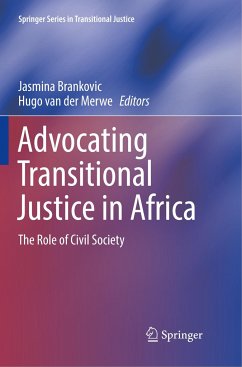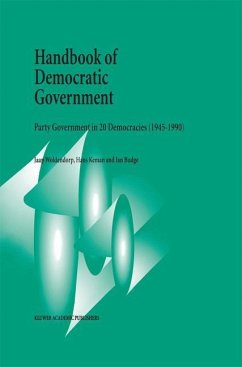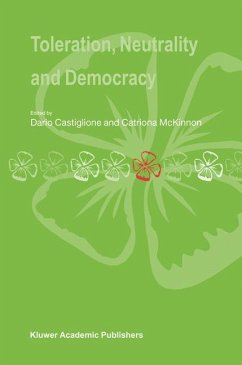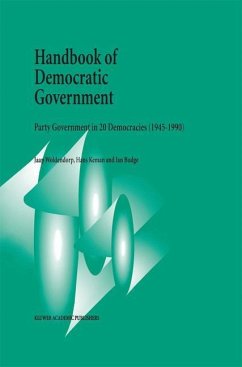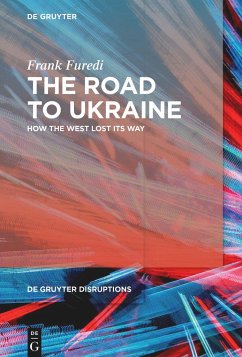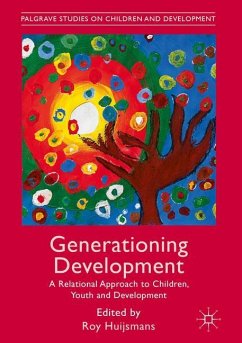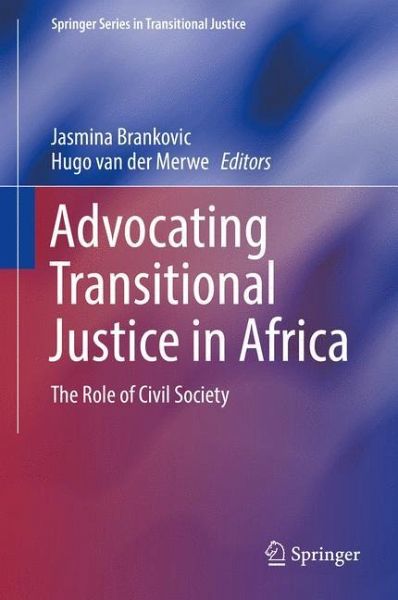
Advocating Transitional Justice in Africa
The Role of Civil Society
Herausgegeben: Brankovic, Jasmina; van der Merwe, Hugo

PAYBACK Punkte
44 °P sammeln!
This edited volume examines the role of local civil society in shaping understandings and processes of transitional justice in Africa - a nursery of transitional justice ideas for well over two decades. It brings together practitioners and scholars with intimate knowledge of these processes to evaluate the agendas and strategies of local civil society, and offers an opportunity to reflect on 'lessons learnt' along the way. The contributors focus on the evolution and effectiveness of transitional justice interventions, providing a glimpse into the motivations and inner workings of major civil s...
This edited volume examines the role of local civil society in shaping understandings and processes of transitional justice in Africa - a nursery of transitional justice ideas for well over two decades. It brings together practitioners and scholars with intimate knowledge of these processes to evaluate the agendas and strategies of local civil society, and offers an opportunity to reflect on 'lessons learnt' along the way. The contributors focus on the evolution and effectiveness of transitional justice interventions, providing a glimpse into the motivations and inner workings of major civil society actors.
The book presents an African perspective on transitional justice through a compilation of country-specific and thematic analyses of agenda setting and lobbying efforts. It offers insights into state-civil society relations on the continent, which shape these agendas. The chapters present case studies from Southern, Central, East, West and North Africa, and a rangeof moments and types of transition. In addition to historical perspective, the chapters provide fresh and up-to- date analyses of ongoing transitional justice efforts that are key to defining the future of how the field is understood globally, in theory and in practice
Endorsements:
"This great volume of written work - Advocating Transitional Justice in Africa: The Role of Civil Society - does what virtually no other labor of the intellect has done heretofore. Authored by movement activists and thinkers in the fields of human rights and transitional justice, the volume wrestles with the complex place and roles of transitional justice in the project of societal reconstruction in Africa. ... This volume will serve as a timely and thought-provoking guide for activists, thinkers, and policy makers - as well as students of transitional justice - interested in the tension between the universal and the particular in the arduous struggle for liberation. Often, civil society actors inAfrica have been accused of consuming the ideas of others, but not producing enough, if any, of their own. This volume makes clear the spuriousness of this claim and firmly plants an African flag in the field of ideas."
Makau Mutua
The book presents an African perspective on transitional justice through a compilation of country-specific and thematic analyses of agenda setting and lobbying efforts. It offers insights into state-civil society relations on the continent, which shape these agendas. The chapters present case studies from Southern, Central, East, West and North Africa, and a rangeof moments and types of transition. In addition to historical perspective, the chapters provide fresh and up-to- date analyses of ongoing transitional justice efforts that are key to defining the future of how the field is understood globally, in theory and in practice
Endorsements:
"This great volume of written work - Advocating Transitional Justice in Africa: The Role of Civil Society - does what virtually no other labor of the intellect has done heretofore. Authored by movement activists and thinkers in the fields of human rights and transitional justice, the volume wrestles with the complex place and roles of transitional justice in the project of societal reconstruction in Africa. ... This volume will serve as a timely and thought-provoking guide for activists, thinkers, and policy makers - as well as students of transitional justice - interested in the tension between the universal and the particular in the arduous struggle for liberation. Often, civil society actors inAfrica have been accused of consuming the ideas of others, but not producing enough, if any, of their own. This volume makes clear the spuriousness of this claim and firmly plants an African flag in the field of ideas."
Makau Mutua



